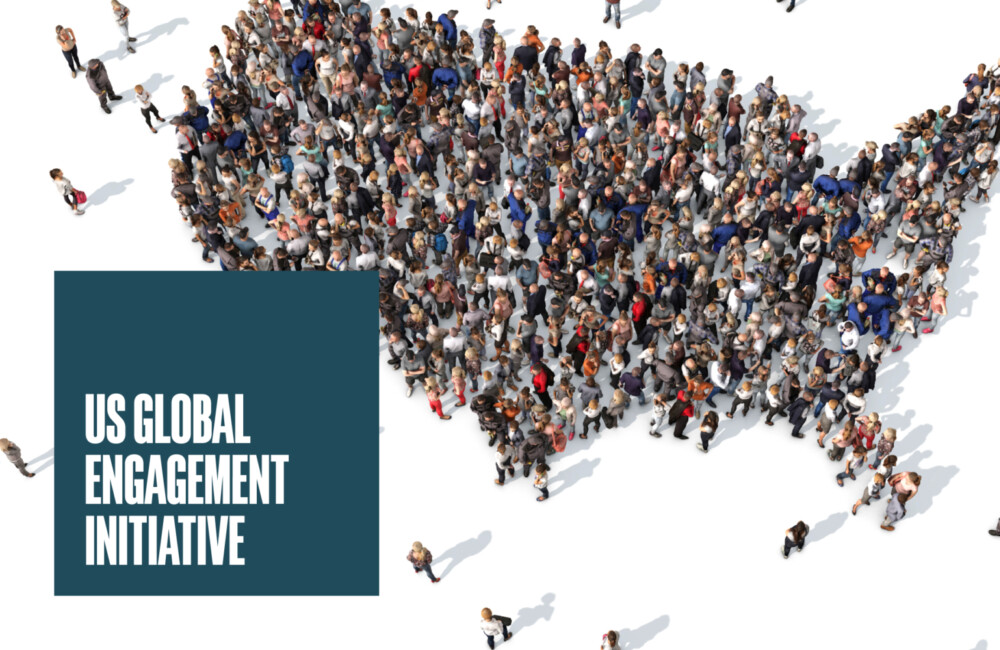Framing ethical perspectives
Multilateralism refers to a group of nations working together for a common goal. It is at the heart of international relations as nation-states form alliances with like-minded countries to take on global issues, such as climate, emerging technology, inequality, and collective security. Carnegie Council sees multilateralism as essential to generating solutions to global problems and a critical component of an ethical present and future.
Featured Multilateralism Resources
Inclusivity, AI & climate governance, and more
FEB 27, 2024 • Video
A Carnegie Council Conversation with the UK Home Secretary
MAR 28, 2024 • Video
Unlocking Cooperation: The Global South and Global North
In the inaugural panel of the "Unlocking Cooperation" series, Ramu Damodaran leads a discussion on forging a path forward for Global South/North collaboration.
OCT 18, 2023 • Video
Unlocking Cooperation: A Global Ethics Day Special Event
In this keynote event for Global Ethics Day 2023, Carnegie Council President Joel Rosenthal led a conversation on the psychology behind cooperation; ways that states, institutions, ...
Subscribe to the Carnegie Ethics Newsletter for more on ethics and international affairs
Related Initiatives
Model International Mobility Convention
The primary goal of the Model International Mobility Convention (MIMC) is to formulate new rules for migration and asylum that can benefit both migrants and refugees as well as their states of origin, transit, and destination.
Carnegie Ethics Accelerator
The Carnegie Ethics Accelerator is a new kind of incubator designed to empower ethics in the face of swiftly evolving challenges in technology and public policies.
Explore Our Multilateralism Resources

JUL 21, 2009 • Article
Possible Attributes of a New Russian-American Treaty on Strategic Offensive Weapons: The View from Russia
Should the START Treaty expire in December without a new treaty (or accord) that has counting rules and verification procedures spelled out, it will be ...

JUL 21, 2009 • Article
Missile Defense: A Sphere of Competition or an Instrument for Jointly Combating the Proliferation of Weapons of Mass Destruction
Pavel S. Zolotarev argues that despite the good intentions of the newly-elected American and Russian presidents and the leadership of the two nations, it is ...

JUL 21, 2009 • Article
A Guide to the Challenges Facing President Obama's Nuclear Abolition Agenda
Burgess Laird argues that the case for nuclear weapons abolition recently advanced by President Obama is built not on the familiar refrain of disarmament advocates ...

JUL 10, 2009 • Podcast
Russia and U.S.-Russia Relations: David Speedie Interviews Ambassador Thomas Pickering
Ambassador Thomas Pickering discusses Russia's role in the unfolding events in Iran and other potential areas of cooperation between Russia and the United States, including ...
JUL 6, 2009 • Podcast
U.S.-Iran Relations After the Iranian Election
How should the United States proceed in its relations with Iran during this turbulent time—and beyond? Should we launch direct, high-level talks between a ...

JUN 5, 2009 • Podcast
North Korea: What Next?
There are no good options in negotiations with North Korea, says Bush's top advisor on North Korean affairs, Victor Cha. It's always a choice between ...
JUN 3, 2009 • Podcast
Ethical Policy Dilemmas in the Promotion of U.S. Human Rights Values
What are realistic processes of social change that should inform effective human rights policy and its implementation? Should human rights issues be pressed even if ...
MAY 19, 2009 • Podcast
The Geopolitics of Emotion: How Cultures of Fear, Humiliation, and Hope are Reshaping the World
What are the driving emotions behind our cultural differences? How do these varying emotions influence the political, social, and cultural conflicts that roil our world?

MAY 11, 2009 • Podcast
After President Obama's Visit to Europe: U.S. Relations with the EU, NATO, and Russia
Distinguished German statesman Karsten Voigt discusses the German political mindset, which grew out of its situation after World War II; Obama's popularity in Germany; and ...

APR 15, 2009 • Podcast
Winston Churchill's Evolving Views of Russia, 1917-1953, Reconsidered
John Lukacs argues that despite the different attitudes Winston Churchill took towards Russia over a 40-year period, there is an amazing consistency to his view ...




